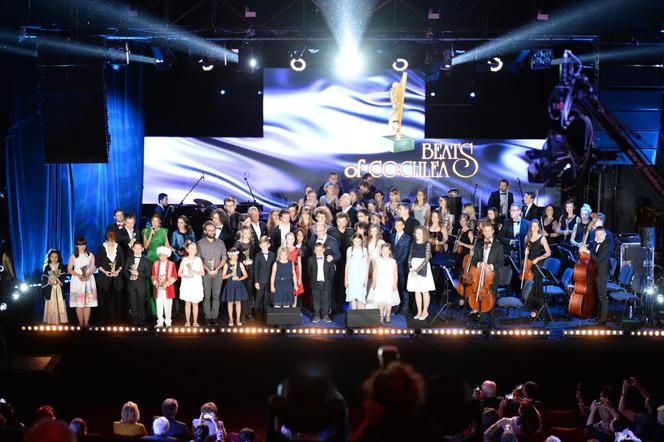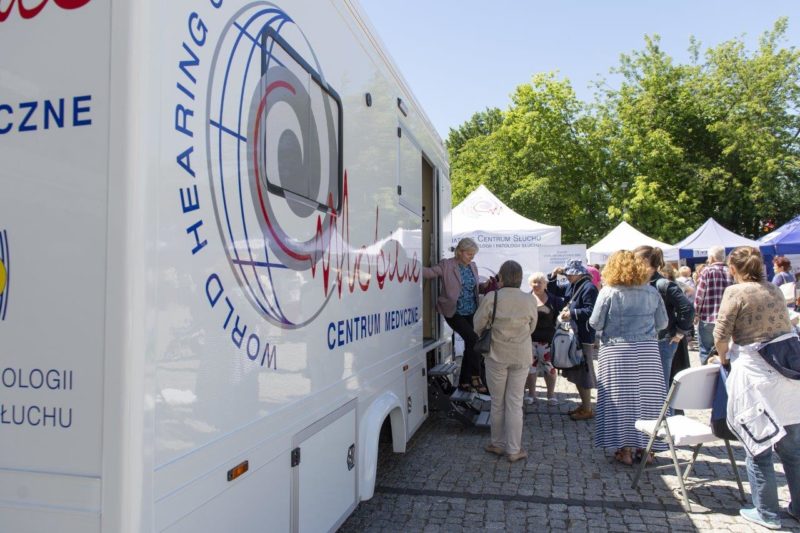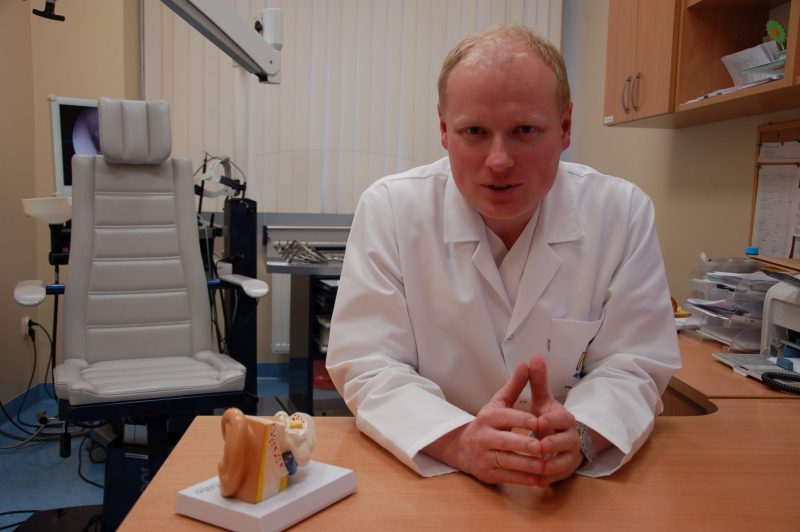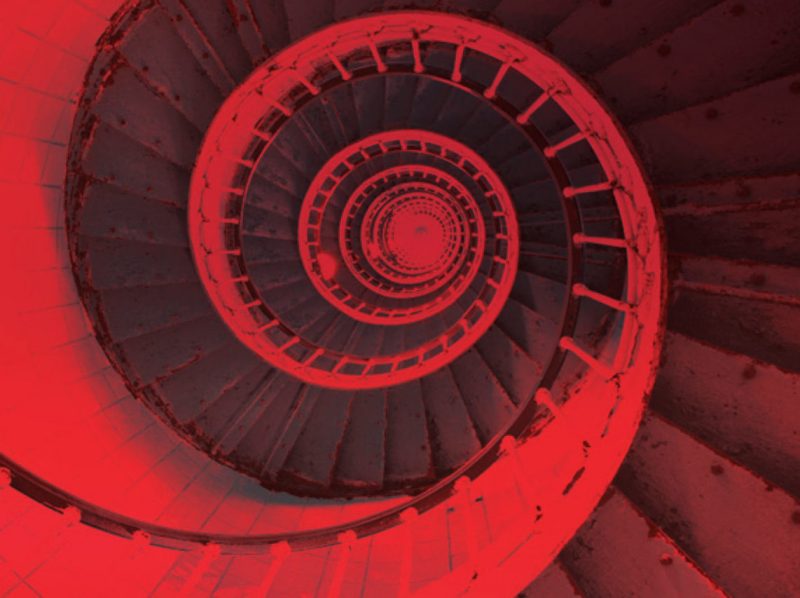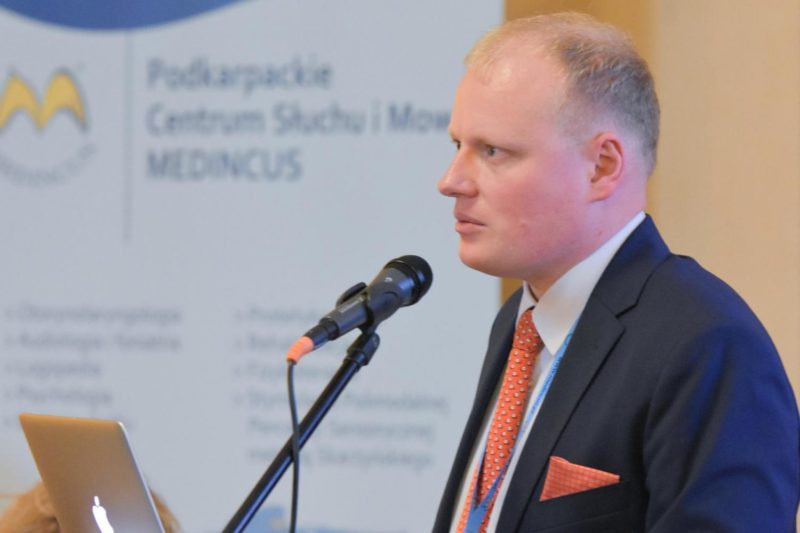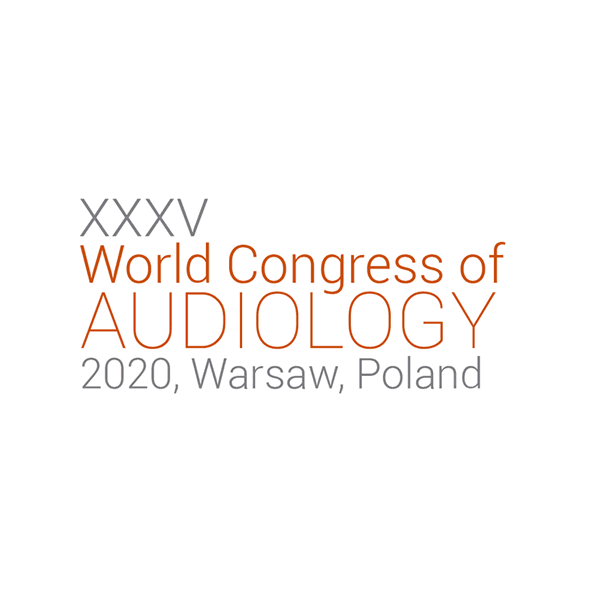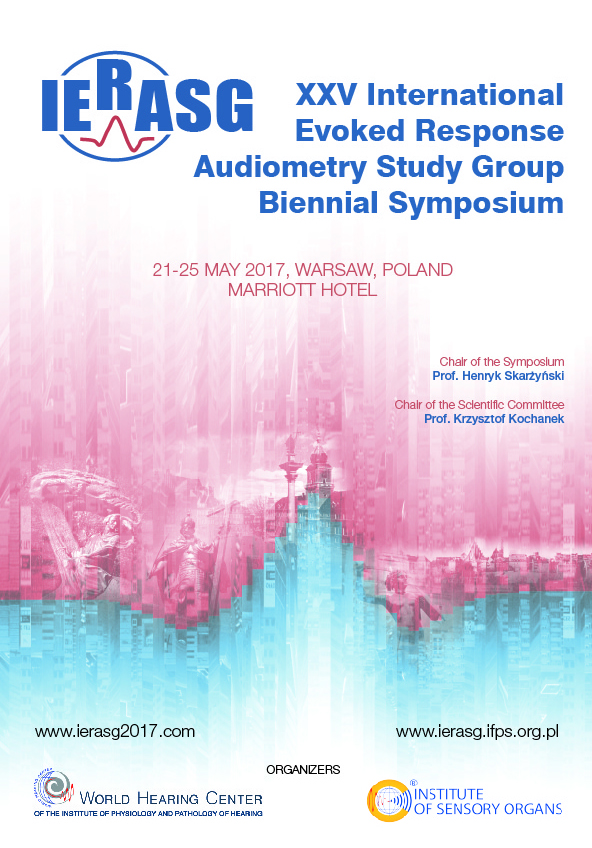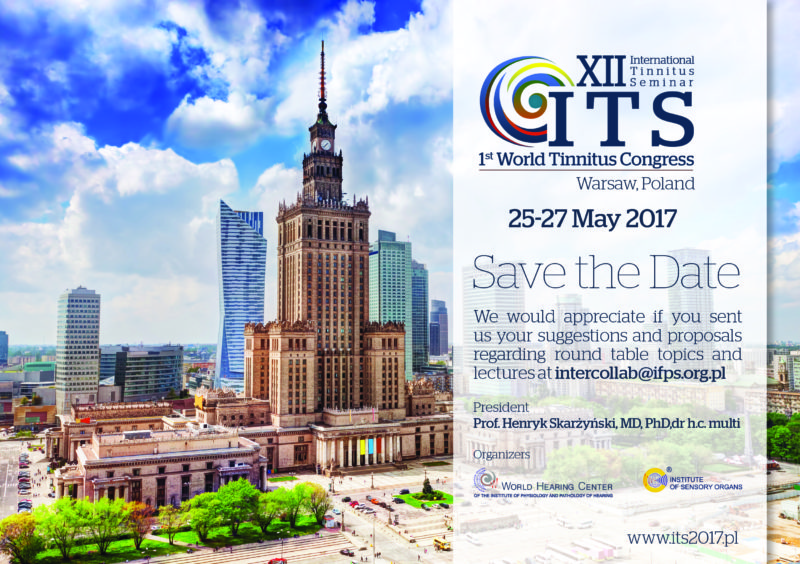The finale hosted by Iwona Konarska and – traditionally – Maciej Miecznikowski took place in the Sinfonia Varsovia concert pavilion, in a place where soon – as emphasized by Prof. Henryk Skarżyński – the largest concert hall in Europe will be built. The first to appear was Rebekah Stewart, a graduate of the Royal Schools of Music, who travelled to Warsaw from a faraway New Zealand. She is a great fan of music, especially Fryderyk Chopin. Her skin disease contributed to almost complete loss of hearing. After implantation in 2016, Rebekah returned to the world of sounds and the world of music – she is a member of musical bands and also a piano teacher. During the final concert she performed the song “You raise me up” by Josh Groban.
After her beautiful performance, the youngest participants of the Festival took the stage: Krzysztof Szczygielski, 14-year-old guitarist (he played “Campomoro” by Joep Wanders) and Samira Yusupowa, 10-year-old pianist from Kazakhstan (she played one of the compositions of Piotr Czajkowski). 12-year-old Aruzhan Narashova from Kazakhstan won the hearts of the audience not only with the skillful performance of “Rondo – Toccata” by Dmitry Kabalewski, but also with the grace with which she entered the stage in a beautiful Kazakh folk costume. Biektore Zhayshylyk also performed in a folk attire, playing the dombra (Kazakh folk instrument) one of the traditional Kazakh songs.
The performance of the “little princess,” as Maciej Miecznikowski called Shiang Tzu Huang, showed how great and rapid progress can be made by a child hearing through implants. A 9-year-old from Taiwan has been learning to play the piano for only two years, but she performed the song “Dolly’s Dreaming and Awakening” by Theodore Oesten with great skill. The audience was amazed. However, the 12-year-old patient of the Institute of Physiology and Pathology of Hearing, Piotr Nowacki, won the hearts of the public. He sang the hit song “Sofia” by Alvaro Soller in Spanish with such passion and energy that the audience began to applaud him along as he was singing.
The oldest participant of the Festival, 67-year-old John Redden, also aroused public enthusiasm. He is a multi-instrumentalist, plays the guitar and the harmonica. Two years ago, he won the Festival. During the last year’s concert he played a melodious, somewhat sentimental song. This year, he showed his passion for heavier beats, performing “Seventh Son” by Johnny Rivers. A moment of reflection was offered by Laima Jakaite, a 48-year-old pianist from Iceland, who played one of the preludes of Johann Sebastian Bach.
The concert ended with a performance of the 28-year-old Sebastian Fehr from Austria. His story (when he lost his hearing, he was convinced that he would never play his favorite trumpet again) moved the audience, Sebastian’s performance with the band in Tyrolean folk costumes and the lively song “Share My Yoke” made the audience laugh.
Apart from ten winners of this year’s edition, patients of Prof. Skarżyński – the laureates of previous editions of the Beats of Cochlea Festival: Małgorzata Strycharz-Dudziak, Estera Łabiga, Anna Adamowska, Daria Władzińska, Weronika Niczyporuk and Olaf Kaca performed together with the “Divertimento” Youth Chamber Orchestra conducted by Krzesimir Dębski. For the first time they performed together one of the songs with lyrics written by Prof. Henryk Skarżyński (music by Prof. Krzesimir Dębski) “When I Regained My Hearing”. It had its premiere in November 2016 during a concert celebrating the 20th anniversary of the Institute of Physiology and Pathology of Hearing at the Warsaw Philharmonic. The song arranged for instruments was an expression of patients’ gratitude to Prof. Henryk Skarżyński for the gift of hearing. But not only this made the performance very special. Our laureates proved that people with auditory implants can feel at ease on stage not only solo, but also, using stage monitors, play and sing with orchestra accompaniment. The performance was a big challenge for them. However, as Małgosia Strycharz-Dudziak stressed after the concert, thanks to rehearsals the whole ensemble was able to face it.
Even such an outstanding pianist as Davide Santacolomba, a graduate of the conservatory in Palermo, a student of the Ukrainian pianist Anna Kravtchenko, a laureate of the 2016 Beats of Cochlea Festival and a special guest of this year’s edition, had fears about the performance with the orchestra’s accompaniment. He has already played many concerts, but they were always solo acts. Before the concert in Warsaw, he had misgivings about “synchronizing” with a large orchestra. His worries turned out to be unjustified. Thanks to the collaboration with Maestro Krzesimir Dębski on stage, his performance of the exceptional work – Grande Polonaise by Fryderyk Chopin, was perfect. The audience was delighted.
The piano show was also given by 15-year-old Vsevolod Khmielnitski from Russia, a laureate of the 2016 Festival. After his first performance at the Fryderyk Chopin University of Music the jury and the audience had no doubt that he was a great talent. In July this year he was a special guest and mature pianist. On the stage of Sinfonia Varsovia he played one of Edvard Grieg’s songs.
An unusual highlight of this year’s concert was the performance of children from the music therapy group active at the World Hearing Center. Music classes for children after implantation have been conducted for several months as part of the Scientific and Music Programme “Music in Human Auditory Development”, implemented on the initiative of Prof. Henryk Skarżyński in the Institute of Physiology and Pathology of Hearing. The performance of young patients, prepared by the music therapist Agnieszka Sepioło, made us realize how music (“Anitra’s Dance” by Edvard Grieg) can involve children hearing through the auditory implants, positively affecting the rehabilitation of hearing.
In the finale – just like during previous concerts ending the “Beats of Cochlea” Festival – Basia Kaczyńska (mezzo-soprano) in duet with Maciej Miecznikowski (baritone) and all the participants and artists sang the anthem “The World I Can Hear.” Prof. Henryk Skarżyński wrote the lyrics for the first edition of the Festival , and music was composed by Prof. Krzesimir Dębski. During the concert the audience experienced an array of the most diverse emotions – from somewhat sad pensiveness to the explosion of joy, and bid all artists and orchestra farewell with thunderous applause.

